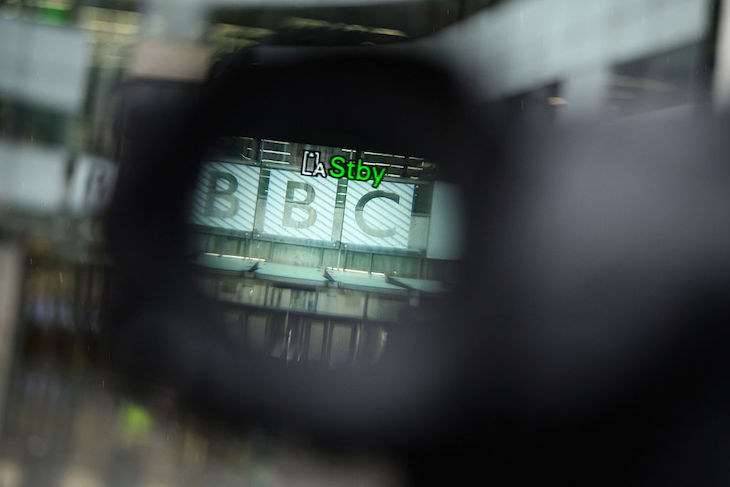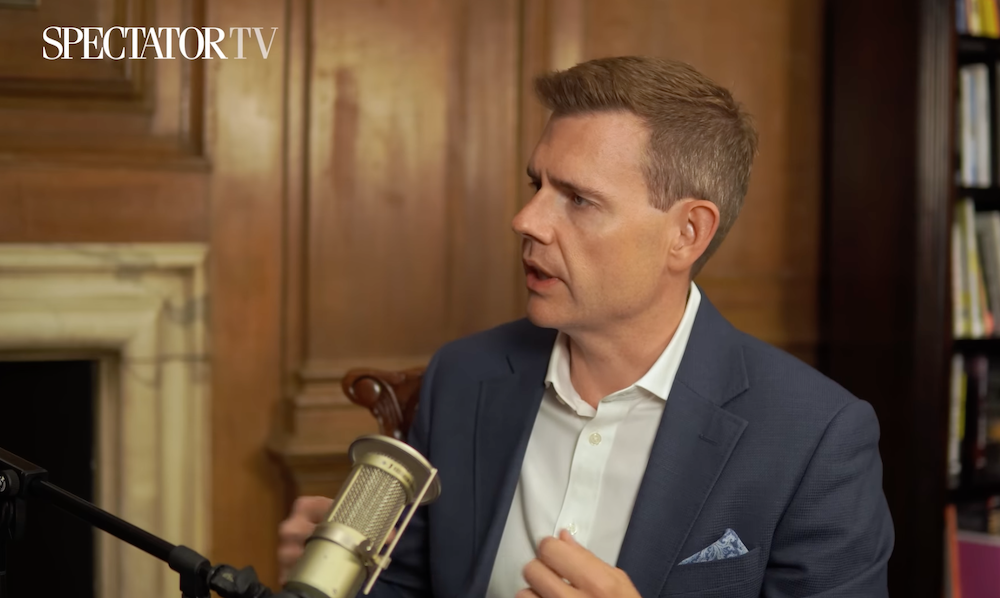A famous pop star once sang that sorry seemed to be the hardest word. Almost fifty years after Elton John uttered those sentiments, nothing has changed. Saying sorry for your own errors or moral transgressions remains for many individuals and organisations an almost impossible task.
Saying sorry for your own errors or moral transgressions remains for many individuals and organisations an almost impossible task
The BBC’s reputed apology to Donald Trump, for having spliced a speech of his from January 2021, is an instructive example of how and why people will dodge this substantial and consequential word. ‘While the BBC sincerely regrets the manner in which the video clip was edited, we strongly disagree there is a basis for a defamation claim,’ it says.
This is a classic case of an insincere apology. The first part concludes in the passive voice – ‘was edited’ – which is a textbook device calculated to avoid admitting responsibility. Its news CEO Deborah Turness used the same ploy when, upon her resignation at the weekend, she said that ‘mistakes have been made’. This appeared to be an attempt not so much to express sincere contrition, but to avoid personal blame and any potential negative consequences.
This fear of consequences was on overt display in both clauses of the BBC’s so-called apology. In the first they ‘regret’ the manner in which the offending clip was edited. Regret is not the same is remorse: the latter always conveys some form of penitence, the former not always. You can ‘regret’ a decision simply because it worked out badly for you. In the BBC’s case, that decision worked out very badly indeed. Hence the heavy qualification contained in the second clause, which suggests that the Corporation is not really saying sorry at all. It’s terrified foremost of the consequences of the editorial decisions its staff made.
There is no ‘was edited’ or ‘mistakes have been made’ about these decisions. The Corporation is behaving like a mischievous child trying to justify the results of his or her bad behaviour. ‘It broke’ and ‘he made me do it’ are the two elementary responses of a child seeking to deflect culpability for their destructive or disobedient actions, while simultaneously attempting to obviate the resultant punishment. The BBC is behaving like a child making excuses or a startled cat who’s been caught licking the butter dish on the kitchen table. The cat is not sorry for what it’s done, it’s sorry it’s been rumbled – and sorry for what might happen next.
The BBC’s passive non-apology designed to offset punishment is, however, understandable and rational. ‘I’m sorry’ is a statement most people are wise to use judiciously and selectively in public life – especially in our age of rule by lawyers, one in which unambiguous declarations of culpability can cost millions of pounds, or as it now transpires, a billion dollars.
The Corporation’s verbal craftiness and shirking of responsibility is also very much of our times. Even worse non-apologies abound in common parlance today. These include ‘I’m sorry you feel that way’ or ‘I’m sorry you feel offended’. These not only cast off all responsibility from the wrongdoer, but throw feelings of guilt back onto the offended party, making him or her feel an oversensitive snowflake or somehow in error or at fault.
Insincere apologies proliferate in three forms today. There are those that seek to deflect or avoid blame: you can detect these from the passive voice. There are those that seek to preclude punishment. These usually appear in the form of the ‘public apology’ from a shamed celebrity or public figure who’s said something ‘offensive’, those which are not volunteered but which result from coercion or pressure. The third are apologies made on the behalf of others which are designed to aggrandise one’s own ego. In recent decades they have appeared most conspicuously in the form of historical apologies, in which heads of government or state say sorry for a wrongdoing from the past that wasn’t their fault.
These are empty gestures. Saying sorry for something you have actually done wrong yourself requires a great deal of emotional effort, investment and cost, whereas apologising on behalf of others is free. It only serves to make you appear morally superior to the dead and to the living. Apologies are never made for events in recent history because victims and instigators of such events might still be alive. While Tony Blair apologised for the Potato Famine when he was Prime Minister in 1997 he will never properly say sorry for the 2003 Iraq War.
Saying that you are sorry – really sorry – is hard work. To issue a weedy apology in order to deflect blame or to avoid punishment is no apology at all. True statements of contrition are issued voluntarily, in the first person and in the active voice. Authentic apologies do not result from cowardice and fear.







Comments